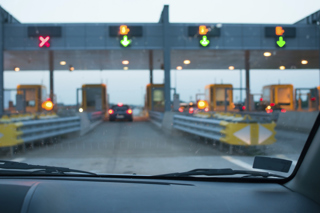Manifesto Requests
Skills and training
Create a two-tier CPC standard for
transport managers
Consultation on car drivers’ ability to drive 3.5-tonne vehicles. Question: should there be a separate provisional licence/driving test?
Parking and appeals
Harmonise local authorities’ approach to parking penalties and the appeals process to create a nationwide standard
Create an online portal with dashboard to view parking penalties and appeals
Communications
Commitment to improve communication from DVLA/DVSA during new projects and publicity when new initiatives are launched
Continuous focus on removing unnecessary paperwork and bureaucracy and replacing them with electronic services and data
The fleet sector is united in its call for better communication from the Driver and Vehicle Licensing Agency (DVLA) and Driver and Vehicle Standards Agency (DVSA).
But it also wants a harmonised approach to parking penalties and the appeals process, which varies nationwide by local authority, and a consultation on the ability for car drivers to automatically qualify to drive a 3.5-tonne van without taking an additional test.
Ongoing moves to eliminate paper and move to electronic systems were welcomed, with the industry seeking a pledge from Government that this would continue while engaging fleet and leasing associations about its future plans.
Pointing to the tax disc, which from October will no longer need to be displayed, and the abolishment of the driving licence paper counterpart from next year, fleets and leasing companies urged the Government’s main driving agencies to consult with the industry earlier and provide better communication about the implications for fleets and drivers.
Speaking at the second Fleet Industry Manifesto meeting, held by Fleet News, BVRLA and ACFO, one leasing company representative said the industry could only do so much to publicise the changes.
“There is a huge population out there who won’t hear about it,” he said. “That’s going to cause us some grief and I think perhaps there should be more of a public campaign.”
Other delegates agreed, with one also urging the DVLA to ensure that the electronic system was easy enough to understand and robust enough to withstand the huge demand for licence checks.
“With more than 150,000 drivers, I need to understand how I get all those driving licences checked when, in the past, a very quick and easy solution was the paper counterpart,” she said.
The variation in approaches taken by local authorities towards parking penalties is causing fleets major problems.
In addition to calling for harmonisation, the industry would also like to see an online portal with a dashboard showing the status of any appeals.
This portal could be integrated with leasing and rental companies’ own fleet management systems enabling them to automatically pass penalties on to the customer and, if requested, challenge on their behalf. It would remove a lot of bureaucracy and cost for the fleet sector.
In addition, a dashboard would enable fleets and leasing companies to get a full picture of parking penalties which would facilitate the appeals process.
“We would know the number of fines that have been issued, and where they are,” said one leasing manager.
“How many have we got under first appeal, how many are in second appeal, how many may be going through legal proceedings. Then we can start managing our fleet more.”
This would give both leasing company and fleet manager greater visibility of their parking charges, he added. And if it could be done by customer details, “that’d be the ultimate”.
At present, only around 0.5% of the 10 million parking charge notices issued every year are appealed, according to Caroline Sheppard, of Traffic Penalty Tribunal. The proportion is slightly higher in London, at 2%, primarily because the penalties are higher: £130 (£65 if paid within 14 days) compared to £70 (£35) or £50 (£25) elsewhere.
Many fleets have taken the decision to pay fines outside London at the cheaper £35 or £25 rate, but to challenge those in London because of the higher costs.
“One of the problems with the complexities of different interpretations and different legislation is that businesses don’t know where to turn,” said one fleet delegate.
“Do I appeal? Do I challenge? Or do I just settle the payment, because this is far easier? The driver may have a legitimate reason to appeal, but they don’t. They’re denied the right of course of action to appeal.”
Another added: “Somebody needs to pull the Government departments and motoring agencies together and see what agreement can be reached.”
Truck and van fleet operators have called for a two-tier Certificate of Professional Competence for transport managers, pointing to the fact that many are over-skilled for the roles they play.
One fleet manager criticised the existing qualification for requiring transport managers to know everything about the business structure, international services, tendering and financial management.
“When you’re trying to recruit for a transport manager in your office overseeing five vans, you’re recruiting somebody who’s over-skilled to do the basics,” she said.
The solution would be to have a second tier of competence, focusing on O-Licence compliance, drivers’ hours and maintenance, which is more representative for the types of role many transport managers play.
A number of fleets felt that compliance levels could be tightened, although the focus should be on tackling smaller operators who are far more likely to fall foul of the standards.
Compliance should focus on vans as much as trucks, particularly with some companies opting to run 3.5-tonne vehicles rather than trucks to side-step the need for an O-Licence.
One fleet said: “The issue is clearly not the major fleets in this room; the issue is with the owner-operators – most of them don’t know what compliance looks like. The onus is with DVSA to educate, teaching them what compliance looks like before you even think about enhanced regulations.”
The ability for people to pass their driving test and then legally drive a 3.5-tonne van was a source of some concern for fleets and leasing companies. An intermediate licence was one solution suggested.
“You can pass your car test in a 1.1-litre Vauxhall Corsa and legally drive a 3.5-tonne van the next day,” said one fleet manager.
“It’s a completely different style of driving and I think that’s where they need a step; it’s too big a gap.”
Another added: “I think we need regulation – another licence or another test.”
Do you agree with the Manifesto requests on red tape and regulation? Email your thoughts to Fleet News editor Stephen Briers – stephen.briers@bauermedia.co.uk



















Login to comment
Comments
No comments have been made yet.